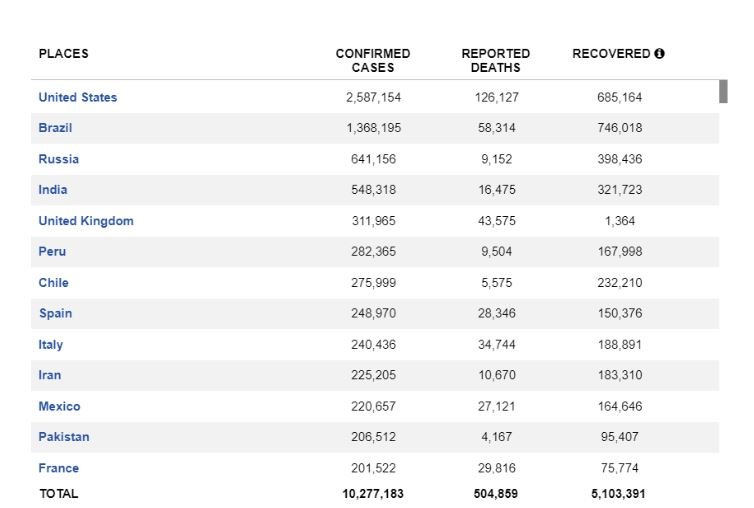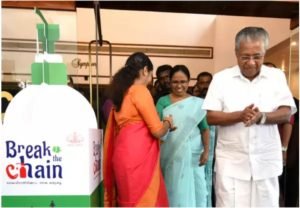
2020 saw the rise of a pandemic named Novel CoronaVirus or COVID 19, that brought the global economy to a standstill and tested the efficiency of the world’s healthcare system. Different countries responded differently to the pandemic by adopting various containment and mitigation methods; by bringing in lockdowns and restrictions like closing schools and markets, banning public gatherings and transportation. Despite all these restrictions, the infection spread kept on increasing around the world. And the spread was beyond what the existing healthcare systems could manage.

Kerala in International Media
Kerala is being lauded all over the international media for its effective pandemic crisis management. The ‘restrictive but humane approach’ by the Kerala government is widely being celebrated by world media across various languages. More than 50 international mediums across 19 countries featured compelling stories on Kerala’s fight against the pandemic. The prominent media were
- Arab News from Saudi Arabia
- L’humanite, Le monde, Courrier International & Sciences et Avenir from France
- Khaleej Times & Gulf news from UAE
- Voice of America, Economist, CNN, Fox News, Vogue & Washington Post from the USA
- MIT Technology Review
- The Guardian, BBC, Tribune from the UK
- 444.hu from Hungary
- Evrensel & Medyascope from Turkey
- The Straits Times from Singapore
- Scoop.me & Der Standard from Austria
- La Stampa, La Repubblica & Z Net from Italy
- National Post from Canada
- Punchng from Nigeria
- Pressenza from Ecuador
- The diplomat from Japan
- Al Jazeera from Qatar
- AJ+ from Qatar
- Dhaka Tribune from Bangladesh
- JungeWelt from Germany
- South China Morning Post from China
- Strajk.eu from Poland
- Brasil de Fato from Brazil
- Prague based Project Syndicate‘s opinion piece by MP Shashi Tharoor.

- Kerala’s decentralised public healthcare system and previous experiences of handling Nipah virus and natural disasters
- The ‘strict but humane’ and welfare-oriented initiatives like treating each patient with equal importance
- Community kitchens run by Kudumbasree & local self-governments to provide food to people who were on quarantine and away from their homes
- Providing food & shelters to thousands of migrant workers and labelling them as guests
- ‘Break the chain’ campaign- that urges the need for public and physical hygiene, the call to physically distance oneself while being socially united
- The daily 6 pm press conferences of CM Pinarayi Vijayan
- The recovery of the 93 & 88-year-old couple.
Health Minister KK Shailaja was one among the several world leaders invited to speak on the occasion of United Nations Public Service Day.
Kerala Model
It is not the first time Kerala is facing an unprecedented crisis, especially when it comes to handling a healthcare crisis. In 2018, Kerala reported South Asia’s first case of Nipah virus, which had a fatality rate of 75%, that claimed the lives of 17 people. But the timely and relentless response of the health department, could bring down the number of deaths and contain the virus from spreading to other districts.
And it’s not accidental that the ‘Kerala model’ is being celebrated. Over the years, Kerala has invested hugely in socio-economic development and public healthcare. The state has been consistently scoring on human developmental indices and has achieved significantly in education, literacy, healthcare, low infant mortality, low birth rate, high life expectancy. Kerala’s COVID-19 mortality rate is 0.5% against the national average of 3.4% and the global average of 6%. Together with the relentless efforts of all health workers, effective communication, awareness strategies and community participation are how Kerala continues to fight COVID-19 pandemic.
Battle against COVID-19 continues
The battle against COVID-19 is not yet over, and there are still many challenges ahead. Kerala has taken the fight against COVID-19 to the next level, as lockdown relaxations have come into effect and the state’s expatriate population around the globe have started returning in large numbers. The infection spread rate has been on the rise since the last few weeks in Kerala. Still, the state government’s effective awareness strategies and tight screening measures, along with community participation, has helped in limiting the number of direct contact cases to 15%. Ultimately, what imparts hope is the government’s vision and its ability to turn each crisis into an opportunity.
